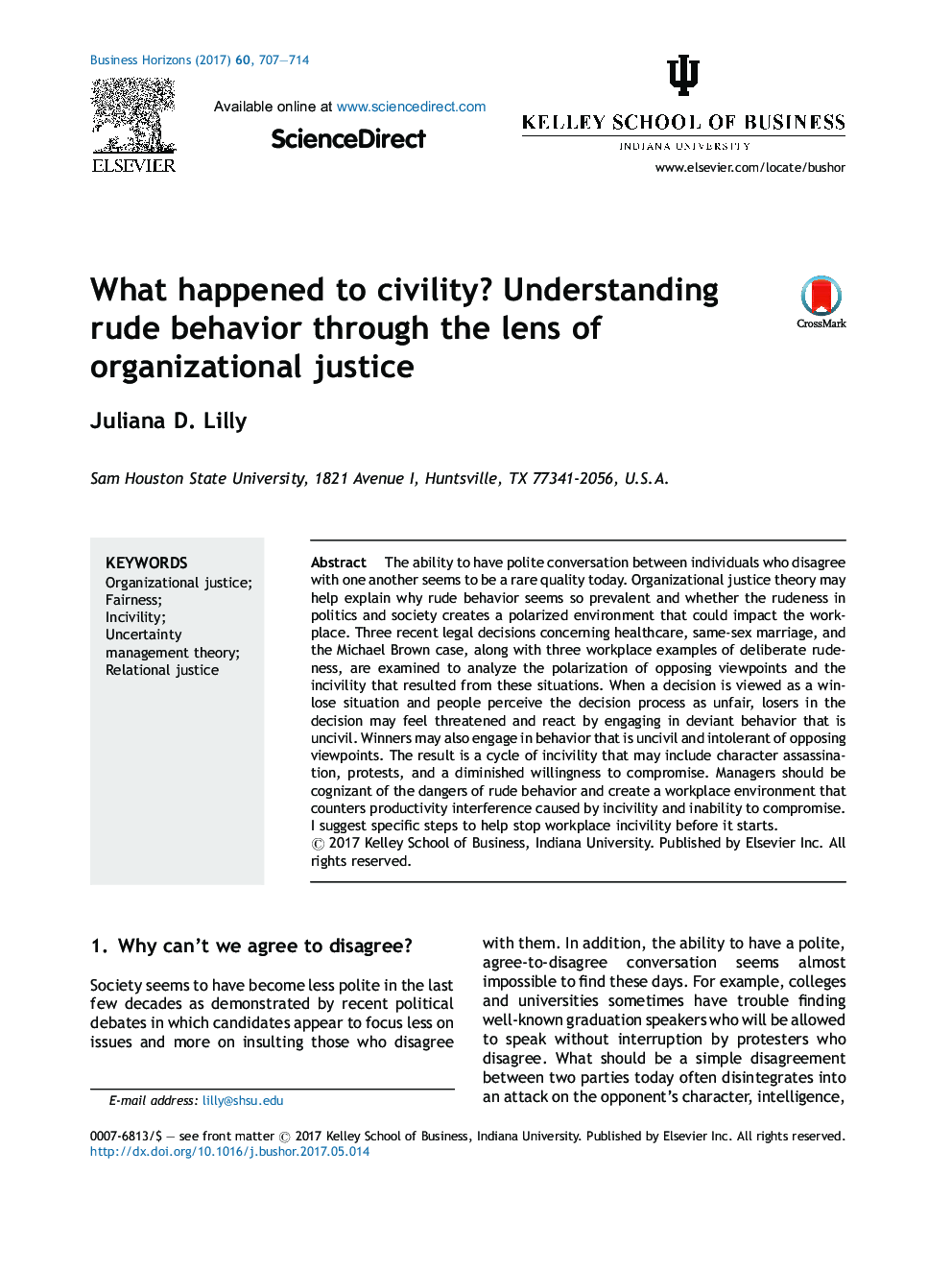| Article ID | Journal | Published Year | Pages | File Type |
|---|---|---|---|---|
| 7423437 | Business Horizons | 2017 | 8 Pages |
Abstract
The ability to have polite conversation between individuals who disagree with one another seems to be a rare quality today. Organizational justice theory may help explain why rude behavior seems so prevalent and whether the rudeness in politics and society creates a polarized environment that could impact the workplace. Three recent legal decisions concerning healthcare, same-sex marriage, and the Michael Brown case, along with three workplace examples of deliberate rudeness, are examined to analyze the polarization of opposing viewpoints and the incivility that resulted from these situations. When a decision is viewed as a win-lose situation and people perceive the decision process as unfair, losers in the decision may feel threatened and react by engaging in deviant behavior that is uncivil. Winners may also engage in behavior that is uncivil and intolerant of opposing viewpoints. The result is a cycle of incivility that may include character assassination, protests, and a diminished willingness to compromise. Managers should be cognizant of the dangers of rude behavior and create a workplace environment that counters productivity interference caused by incivility and inability to compromise. I suggest specific steps to help stop workplace incivility before it starts.
Related Topics
Social Sciences and Humanities
Business, Management and Accounting
Business and International Management
Authors
Juliana D. Lilly,
